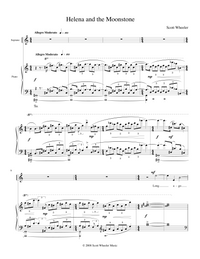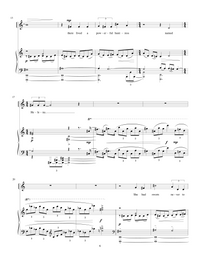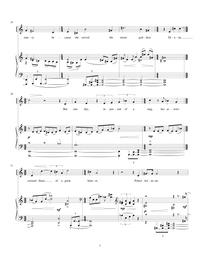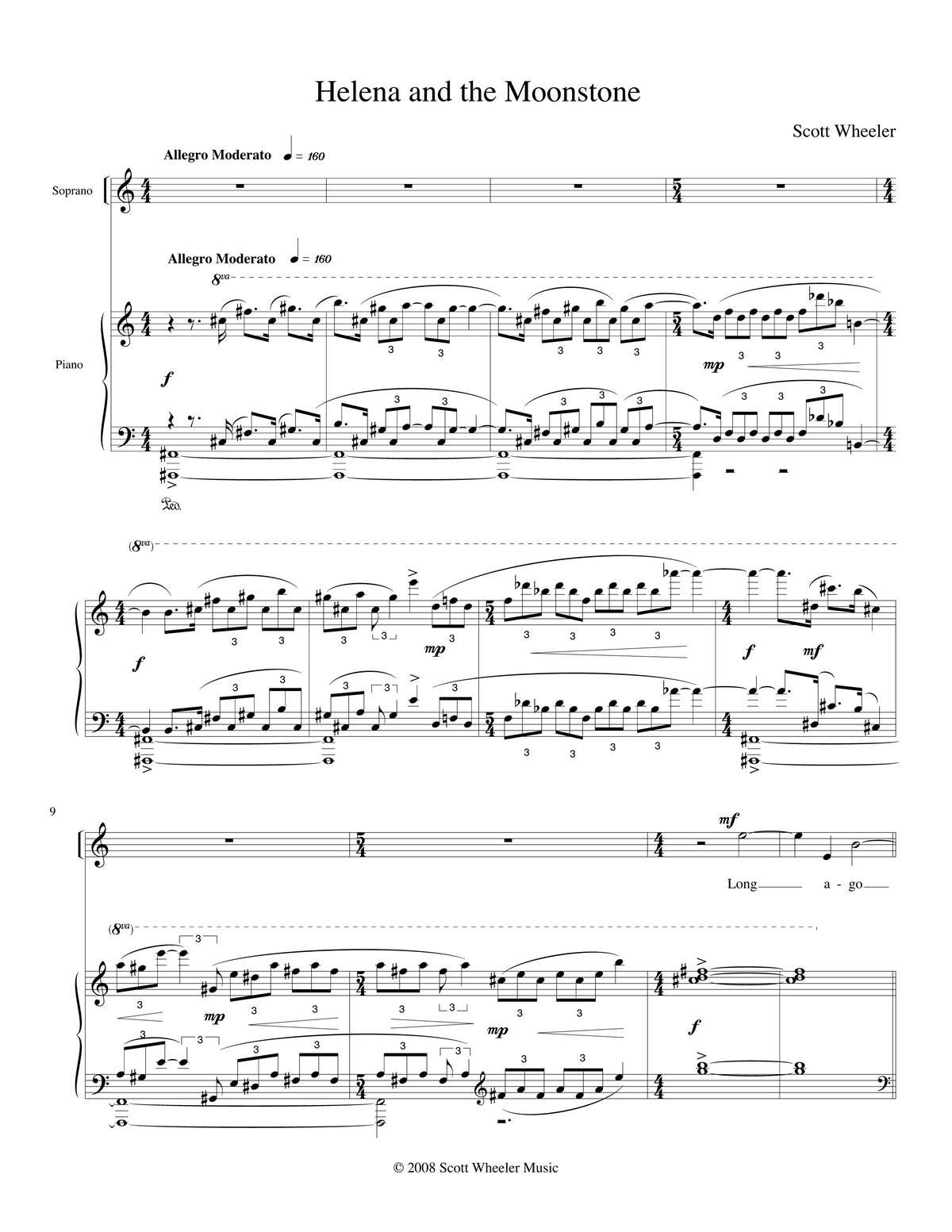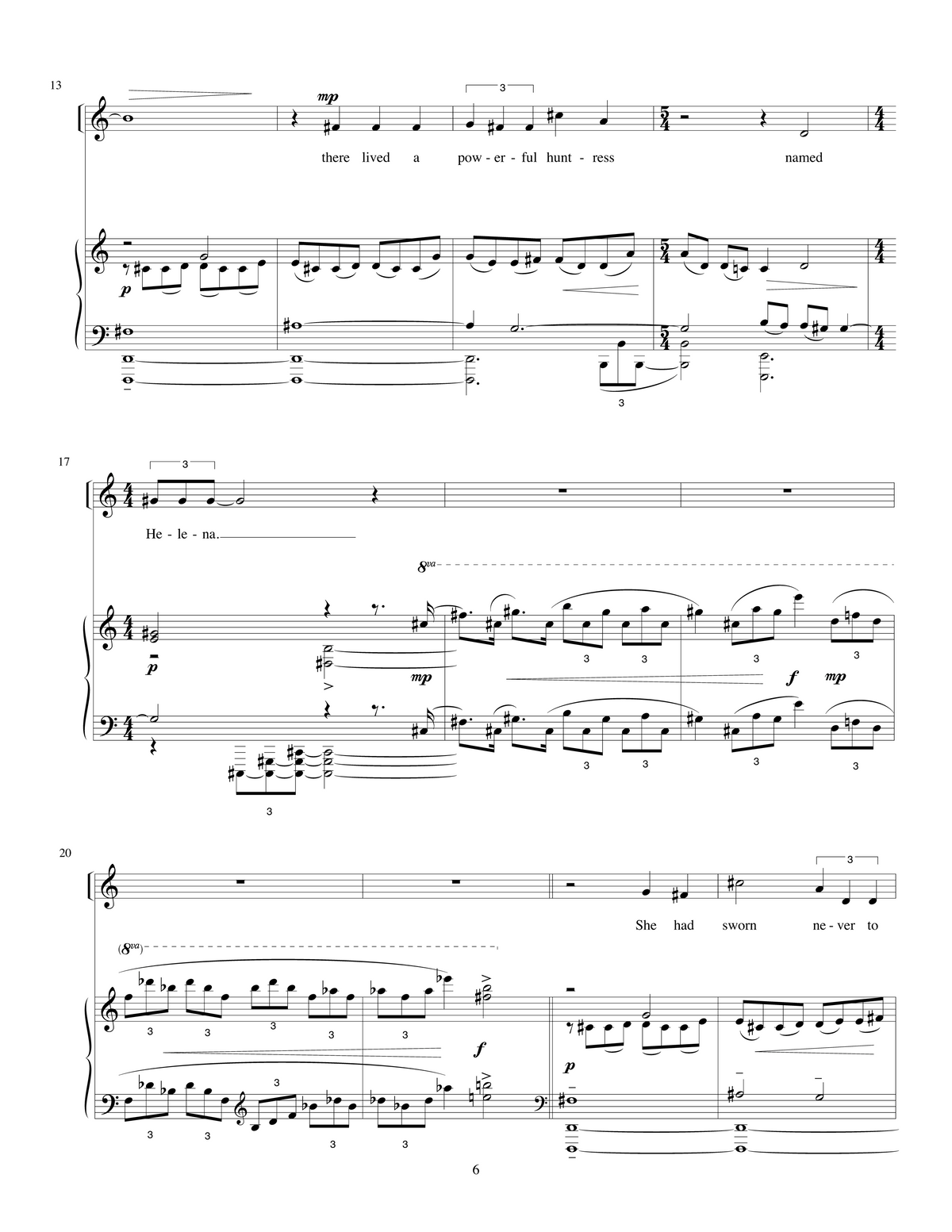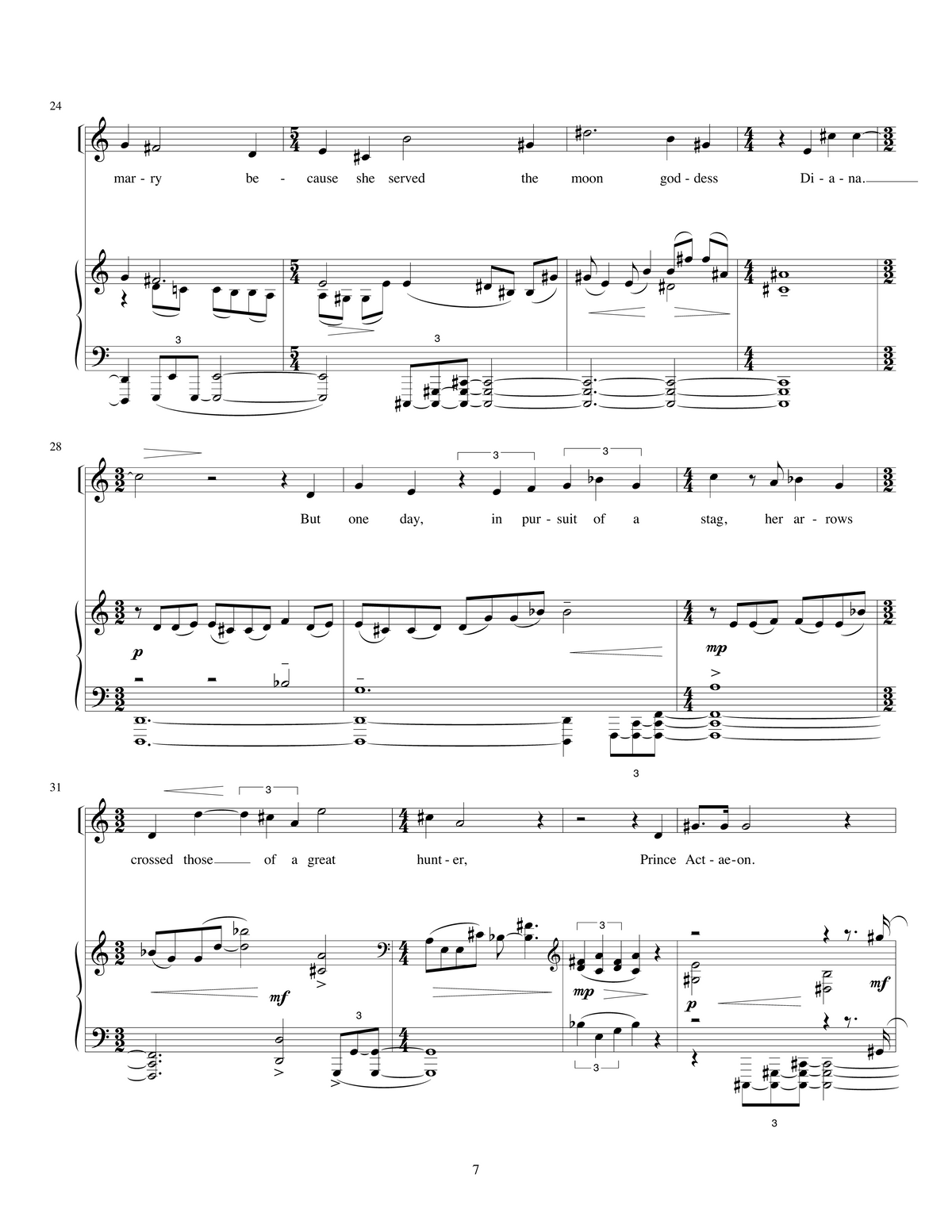Helena and the Moonstone - Scott Wheeler
- Regular
- $19.99
- Sale
- $19.99
- Regular
- Unit Price
- per
Composer: Scott Wheeler
Instrumentation: Soprano and piano
Duration: Approx. 16 minutes
Date Written: 1999
Synopsis
The huntress Helena serves the moon goddess Diana, but secretly she has married the hunter Actaeon. Her greatest desire is to bear his child, though it will mean her banishment. Actaeon agrees to seek help from Hecate, goddess of the night, who tells him to steal and then return the moonstone from the necklace of Diana. He succeeds in getting the stone to Helena, but in returning it is caught by Diana, who transforms him into a stag. When his own hounds chase him, Helena herself kills the stag. She bears Actaeon’s child, to whom she sings a lullaby, “We will wait for your father.”
Helena and the Moonstone begins as a sung story, but as the soprano takes on the roles of Helena, Actaeon, Hecate, and Diana, each with brief arioso sections, it expands into a dramatic cantata, or perhaps a solo opera.
Notes:
Notes
Like many operatic heroines, Helena is strong, sensual, and beguilingly determined to have her own way, however unwise that might be. She doesn’t want to submit to the limitations marriage would put on her freedom, so she vows to continue her tomboy existence of hunting with the virgin goddess Diana. But her carnal passions lead her to Actaeon, so she tries to have it both ways by continuing with Diana but marrying in secret.
Actaeon guesses that it is this conflicted situation that causes Helena’s barrenness, but she is determined enough to turn to witchcraft, which seems to have been an interest of hers for a while. This technological solution to the fertility problem has its complications and dangers. Actaeon is strong, but is understandably entranced by Helena, and is no match for her guile. His love for her and his confidence in his physical prowess lead him to take fatal risks with both the moon-goddess Diana and the witch-goddess Hecate.

